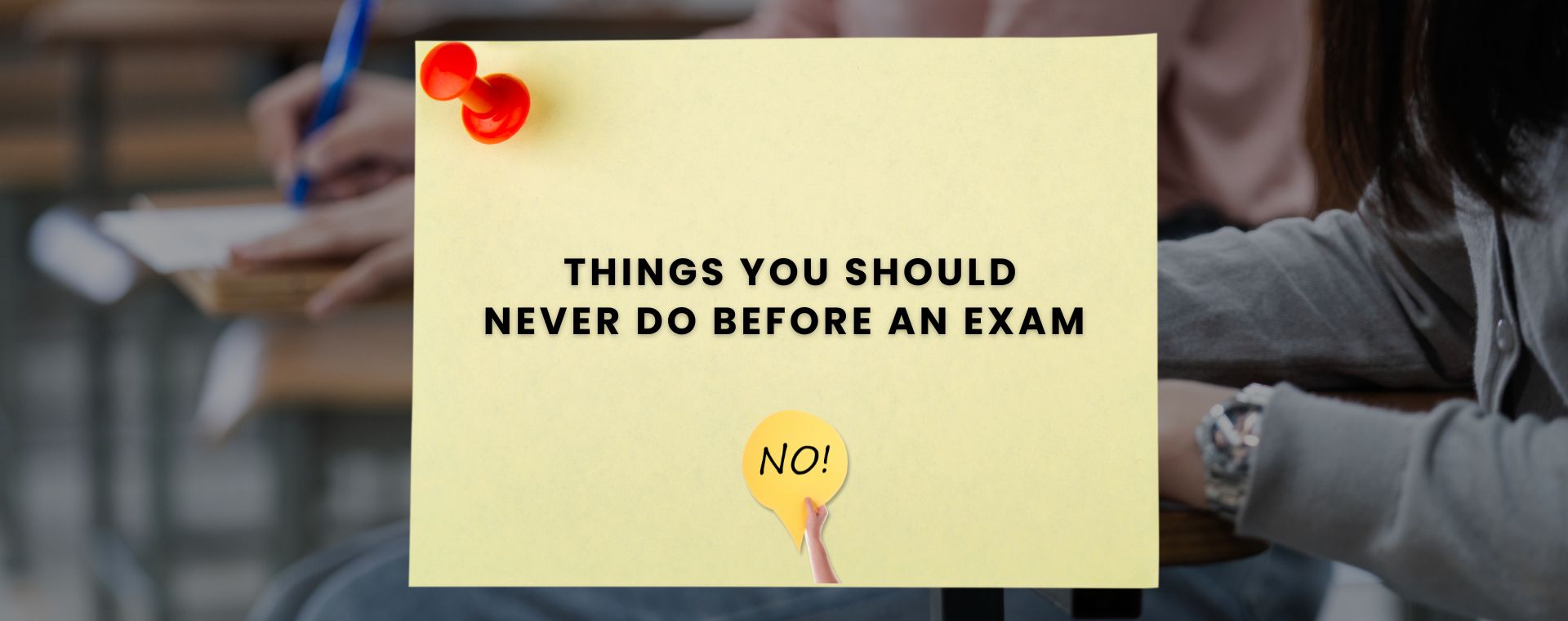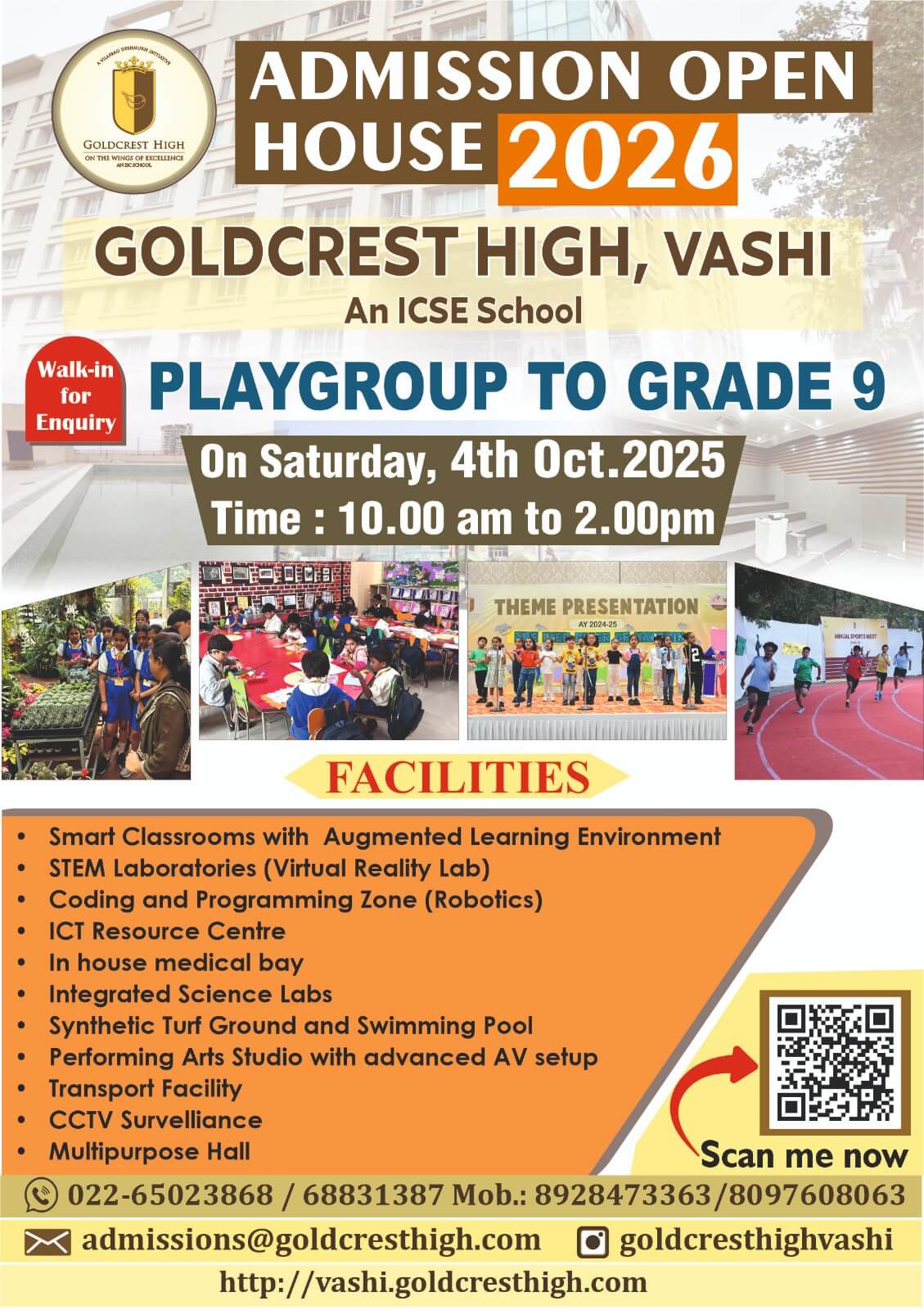
Things You Should Never Do Before An Exam
Ah, the anticipation, the nerves, the late-night cram sessions - yes, exam season is upon us once again. Whether you're a seasoned student or fresh-faced to the world of exams, the pressure to perform can feel overwhelming at times. In this guide, we'll delve into the essential do's and don'ts to keep in mind before you study for exams. From battling procrastination to prioritising self-care, we'll cover it all, ensuring you're well-equipped to face the challenge head-on. So, without further ado, let's dive into some of the best advice from one of the top schools in Navi Mumbai.
1. Excessively Cramming
The age-old habit of cramming - the ultimate temptation for students facing looming exams. However, succumbing to this urge can often lead to more harm than good, especially when it comes to the exam for students. Instead of cramming, opt for a consistent study routine that breaks down the material into manageable chunks. Regular review and reinforcement will serve you far better in the long run.
2. Procrastinating
Procrastination: the arch-nemesis of productivity. We've all fallen into its clutches at some point, but resisting its allure is essential for effective exam preparation. Set aside dedicated study time each day, and employ techniques like the Pomodoro method; The Pomodoro method is a time management technique where you work for 25 minutes, then take a short break. This cycle is repeated, with longer breaks after every four work sessions. to maintain focus and motivation. Remember, every minute counts during exam season.
3. Neglecting Self-Care
In the whirlwind of exam preparation, it's easy to neglect your well-being. However, self-care is non-negotiable when it comes to maintaining peak performance. Ensure you're getting enough restful sleep, nourishing your body with nutritious meals, and staying hydrated. Remember to incorporate regular exercise into your routine - it's a game-changer for reducing stress and boosting focus.
4. Not Studying in a Distraction-Free Environment
Distractions can derail even the most diligent of study sessions. To maximise your productivity, create a study environment free from disruptions. Find a quiet space, turn off notifications on your phone, and immerse yourself fully in the task at hand. Minimising distractions will allow you to maximise your study time and retain information more effectively as you study for exams.
5. Using Unproductive Studying Techniques
Not all study methods are created equal. Experiment with multiple techniques to see what works best for you. Whether it's creating mind maps, using flashcards, or teaching the material to someone else, variety is key to keeping your study sessions engaging and productive. Don't be afraid to mix things up and adapt your approach as needed to create effective study habits.
6. Clumping Information Together in Unmanageable Goals
The prospect of exams can feel daunting, but breaking down your study goals into smaller, more manageable tasks can make them feel more achievable. Set realistic targets for each study session, and celebrate your progress along the way. By tackling one step at a time, you'll build momentum and confidence leading up to the exam.
7. Hesitating to Seek Support When Needed
Last but not least, don't hesitate to reach out for help when you need it. Whether it's clarifying doubts with your teachers or forming study groups with peers, there's strength in seeking support. Don't underestimate the power of collaboration and discussion in deepening your understanding of the material. Remember, you're not in this alone.
Finally, exam preparation does not have to be a daunting task. By adopting these key strategies, you'll set yourself up for success and approach exams with confidence. So, say goodbye to cramming, beat procrastination, prioritise self-care, create a distraction-free environment, embrace effective study techniques, break it down into manageable goals, and seek support when needed. You've got this!
